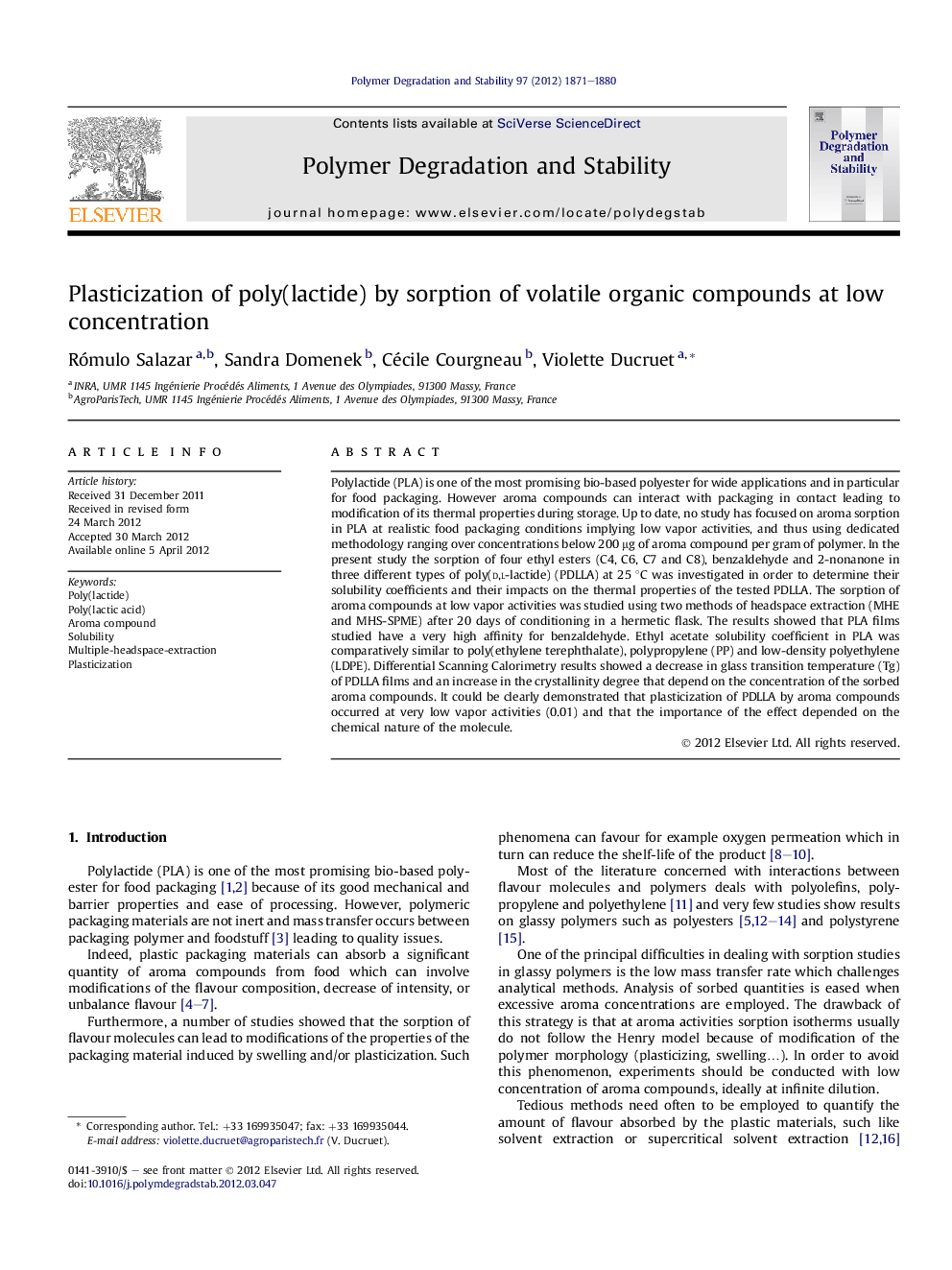| Article ID | Journal | Published Year | Pages | File Type |
|---|---|---|---|---|
| 5202307 | Polymer Degradation and Stability | 2012 | 10 Pages |
Polylactide (PLA) is one of the most promising bio-based polyester for wide applications and in particular for food packaging. However aroma compounds can interact with packaging in contact leading to modification of its thermal properties during storage. Up to date, no study has focused on aroma sorption in PLA at realistic food packaging conditions implying low vapor activities, and thus using dedicated methodology ranging over concentrations below 200 μg of aroma compound per gram of polymer. In the present study the sorption of four ethyl esters (C4, C6, C7 and C8), benzaldehyde and 2-nonanone in three different types of poly(d,l-lactide) (PDLLA) at 25 °C was investigated in order to determine their solubility coefficients and their impacts on the thermal properties of the tested PDLLA. The sorption of aroma compounds at low vapor activities was studied using two methods of headspace extraction (MHE and MHS-SPME) after 20 days of conditioning in a hermetic flask. The results showed that PLA films studied have a very high affinity for benzaldehyde. Ethyl acetate solubility coefficient in PLA was comparatively similar to poly(ethylene terephthalate), polypropylene (PP) and low-density polyethylene (LDPE). Differential Scanning Calorimetry results showed a decrease in glass transition temperature (Tg) of PDLLA films and an increase in the crystallinity degree that depend on the concentration of the sorbed aroma compounds. It could be clearly demonstrated that plasticization of PDLLA by aroma compounds occurred at very low vapor activities (0.01) and that the importance of the effect depended on the chemical nature of the molecule.
